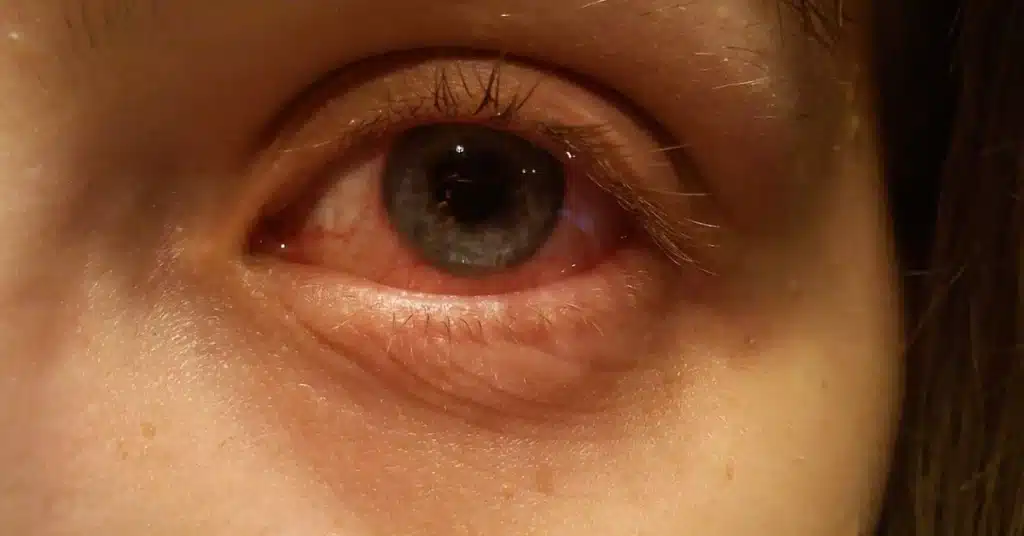Eye infection is a broad term for various eye conditions caused by bacterial, viral, or fungal infections.
It may cause inflammation, redness, itching, discharge, blurred vision, light sensitivity, and more.
However, there are many medicines that may help treat eye infections.
Let us explore the eye infection medicines that may help regain clear and healthy eyesight.
Eye infection medicine
Eye infections can significantly impact one’s ocular health and overall well-being.
However, eye infection medicines are a great way to deal with the condition as they help ease eye infection symptoms.
The medicines fight specific infection-causing pathogens and help restore the clarity of one’s vision.
Eye infections range from common conditions like Pink Eye (Conjunctivitis) to more severe issues like Keratitis.
Let us explore all the eye infection medicines in detail.
Amoxicillin for eye infection
Amoxicillin is an antibiotic used to treat various bacterial infections like chest infections, dental abscesses, and more.
However, Amoxicillin is not an ideal choice for treating internal eye infections, as it may cause irritation.
The doctor may suggest other eye antibiotics for safe and efficient ocular use.
However, doctors may prescribe Amoxicillin if the eye infection is external or extends beyond the eye.
Doxycycline for eye infection
 Source: angeljana
Source: angeljanaDoxycycline is a broad-spectrum antibiotic effective against bacterial eye infections like Bacterial Pink Eye.
The medicine works by stopping the bacteria from growing and spreading.
Doxycycline is available topically in the form of eye drops and ointment. Consult a doctor for proper diagnosis and dosage.
Steroid for eye infection
Steroid eye drops like Prednisolone help treat eye inflammation caused by infection and other ocular conditions.
The medicine is used to ease symptoms like eye redness, itching, and swelling.
However, steroid medicines should not be used for the long term, as they may cause Cataracts or Glaucoma.
Consult a doctor for proper dosage, as the medicine is only available with a prescription.
Over-the-counter medicine for eye infection
Over-the-counter (OTC) medicines for eye infections are affordable and convenient solutions for mild eye discomfort.
Antihistamine eye drops may help ease symptoms like itching and redness.
Additionally, artificial tears can provide relief from dryness and irritation caused by environmental factors or prolonged screen time.
The lubricating eye drops help maintain moisture on the ocular surface and reduce discomfort.
However, one should avoid OTC medicines as they may not be suitable for all eye infections.
Always consult a doctor and get proper prescription medicines for eye infections.
Home remedies for eye infection

Home remedies can be a good way to ease mild cases of eye infections.
The home remedies for eye infections include warm compress, saline solution, good hygiene, and avoiding touching or rubbing the eyes.
A warm compress and saline solution may help soothe the eyes and reduce discomfort.
Additionally, practicing good hygiene can prevent the spread of infection from one person to another.
Individuals should avoid using home remedies like tea bags, honey, or other substances, as they have limited scientific study.
Consult a doctor for proper diagnosis, care instructions, and treatment.
Key takeaways
Effective eye infection treatment involves understanding the type of infection and choosing the right medication.
The eye infection medicines include antibiotic eye drops, antiviral medications, and more.
The medicines are available with a doctor’s prescription and help ease the symptoms like redness, itching, and more.
Also, one should not use OTC medicines as they may not be suitable for all eye infections and may cause side effects.
Always consult an eye doctor for accurate diagnosis and proper treatment.
Frequently Asked Questions
Is there an over-the-counter medicine for eye infections?
Yes, over-the-counter (OTC) medicines are available for mild eye infections. The medicine includes eye drops that contain antihistamines or lubricants to relieve symptoms like redness and itching. However, one should avoid OTC medicines, as they may cause unwanted side effects.
Do you need a prescription for eye infection medicines?
Yes, eye infection medicines are only available with a doctor’s prescription. Consult an eye doctor for a proper diagnosis and appropriate treatment plan.
Is it safe to use contact lenses if I have an eye infection?
No, it is not safe to use contact lenses if you have an eye infection. Contact lenses can trap bacteria, worsen the infection, and delay healing. Additionally, wearing lenses may increase discomfort.
How do you prevent eye infections?
One should practice good hygiene to prevent eye infections. The good hygiene habits include washing hands regularly, avoiding touching or rubbing the eyes, and using clean towels and pillowcases. One should also protect eyes from irritants and go for regular eye check-ups.
Can I use expired eye drops for eye infections?
No, one should not use expired eye drops for eye infections. Expired medications are not effective and may cause unwanted side effects. It is recommended to dump expired eye drops and consult a doctor for a new prescription if needed.
When referencing outside resources, GoodrxMedicine always provides full citations. To learn more about the measures we use to maintain the quality of our content, please review our Content Information Policy.











